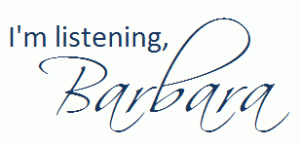
“You only learn to be a better writer by actually writing.” Doris Lessing
In addition to traditional writing assignments (news releases, feature stories, etc.) in our PR Writing course, all students in my PRCA 3330 classes at Georgia Southern University will also create and maintain a blog as part of the course. This post explains the types of content I expect you to write about in your blog for PRCA 3330. (For information on how to start your blog, see Getting Started with WordPress.)
Please add a category for each type (listed below), and make sure each post is categorized appropriately. Each post for this class must have the category of “PRCA 3330” along with at least one additional category. (If you do not categorize your posts with the name of the class, it will be much more difficult for me to find them, and you cannot earn full credit.)
1. Reading notes – brief notes or key ideas from the reading assigned for that week’s class. Jot down 3-5 ideas that you believe are the most important & wish to remember. Be very brief, but write enough so someone who can’t read your mind understands what you mean and I am convinced that you actually did the readings. Remember to cite your source(s) when you paraphrase or quote materials from the readings; use a hyperlink to the book (either at the publisher’s site or at a bookseller like Amazon.com). Though these weekly assignments are due Friday at 11:59pm, many students prefer to do their Reading Notes before they take their weekly RATS (Readiness Assessment Tests).
2. Topic of the Week – Starting the second week of class, you will have a specific topic related to public relations writing to write about. You will have seven of these before the end of the semester. See our TOW list (which will be updated weekly).
3. PR Connections – commentary, reflections and opinions about PR issues/examples that were not addressed in class. These can be responses to other PR blogs you read, links to interesting posts or articles, embedded YouTube videos, etc. You should write at least five of these during the semester, with the first two complete before the end of May, and the remaining three before the end of the semester.
4. Blog comments – whenever you comment on someone’s PR blog (whether it’s a PR professional or a PR student), add the comment to ONE post that you update throughout the semester so I can assess your online participation. You will need 15 comments during summer semester. Do this only for PR-related blogs. See Tracking Your Blog Comments for Nixon’s Classes for more information, including specifics on the formatting.
5. Personal – optional category. Use it for any posts not related to public relations.
You may add other categories and sub-categories of your choice. Please keep in mind that when I evaluate your blog I will pay special attention to the categories listed above, but I will not ignore other posts. I will perform a wholistic evaluation of your blog, looking for:
- professionalism: Clear, correct, thoughtful writing
- frequency: Sufficient posts in categories 1-3, posted throughout the semester. There will be at least two blog checkpoints during the semester.
- linking: Identify other PR blogs (use PR Open Mic or my blogroll in my Delicious bookmarks as starting points) and link to them. Respond to others’ posts. Become a part of the blogosphere. Blogging should not be lonely.
- readability: brief & concise writing style, use of white space, bold characters, images, bullet points
SUPER-IMPORTANT: In order for you to get credit for your blog, I need to know where it is. Tell me your blog address by completing this Google Form; do this no later than May 24.
Questions? Just let me know.

NOTE: Many thanks to Dr. Mihaela Vorvoreanu at Purdue University, who allowed me to use her blogging guidelines from her PRinciples class. They were so well-written that I made just a few tweaks for my own class. Dr. V knows that Blogs Matter.



 For fall semester’s PR Writing courses that I’m teaching for Southeastern University & Georgia Southern University, I am again augmenting my own content and
For fall semester’s PR Writing courses that I’m teaching for Southeastern University & Georgia Southern University, I am again augmenting my own content and  As our semester begins at Georgia Southern, students are asking me questions via e-mail about our online classes. Rather than responding individually (so only one student can benefit), I’ve created a list of FAQs so that all can benefit.
As our semester begins at Georgia Southern, students are asking me questions via e-mail about our online classes. Rather than responding individually (so only one student can benefit), I’ve created a list of FAQs so that all can benefit.





